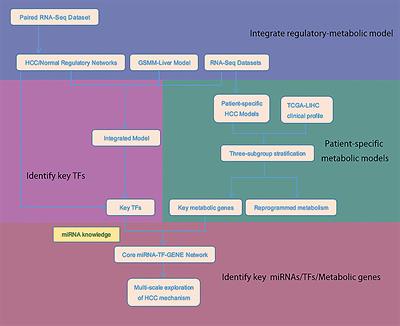EDITORIAL
Published on 12 Apr 2022
Editorial: Systems Biology and Omics Approaches for Understanding Complex Disease Biology
- 2,615 views
- 7 citations
27k
Total downloads
112k
Total views and downloads
You will be redirected to our submission process.
EDITORIAL
Published on 12 Apr 2022
ORIGINAL RESEARCH
Published on 31 Jan 2022

ORIGINAL RESEARCH
Published on 14 Oct 2021

ORIGINAL RESEARCH
Published on 24 May 2021

ORIGINAL RESEARCH
Published on 20 May 2021

ORIGINAL RESEARCH
Published on 18 May 2021

REVIEW
Published on 03 May 2021

MINI REVIEW
Published on 22 Apr 2021

ORIGINAL RESEARCH
Published on 11 Jan 2021

ORIGINAL RESEARCH
Published on 23 Dec 2020

TECHNOLOGY AND CODE
Published on 08 Dec 2020

BRIEF RESEARCH REPORT
Published on 25 Nov 2020


Frontiers in Applied Mathematics and Statistics
Systems Biology ArchiveOffline
Frontiers in Bioengineering and Biotechnology
Computational GenomicsOffline
Systems Biology ArchiveOffline
Frontiers in Cell and Developmental Biology
Systems Biology ArchiveOffline
Frontiers in Neuroscience
Systems Biology ArchiveOffline
Frontiers in Physiology
Systems Biology ArchiveOffline
Frontiers in Plant Science
Computational GenomicsOffline
Frontiers in Psychiatry
Systems Biology ArchiveOffline